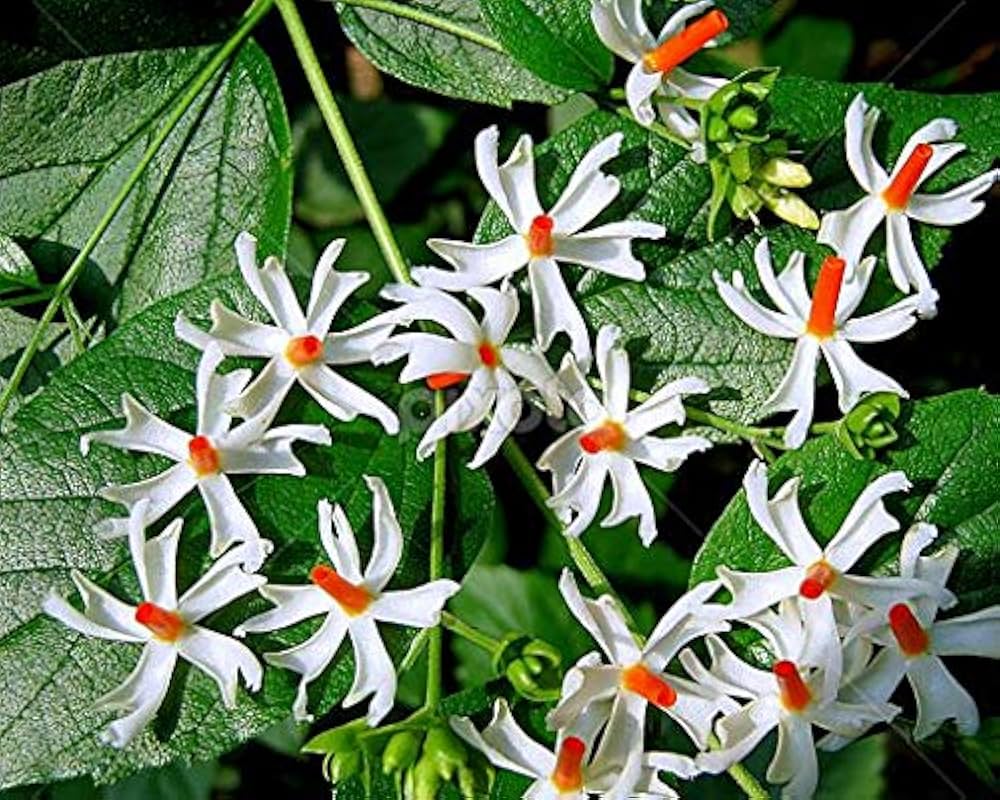Harsingar
Nyctanthes arbor-tristis
The Harsingar Tree, also known as Parijat or Night-flowering Jasmine, is a small deciduous tree valued for its beautifully fragrant white-orange flowers and traditional medicinal uses.
Quick Facts
Visit Information
Location
Home gardens, temple grounds, parks
Best Viewing Time
Deciduous
Habitat & Care
Natural Habitat
Tropical and subtropical regions of South Asia
Lifespan
Moderately long-lived
Temperature Range
Warm and mild
Significance
Medicinal Uses
Ornamental planting, religious offerings, Ayurvedic medicine
Cultural Significance
Flowers are offered to deities in Hindu rituals
Conservation Status
Least Concern
Did You Know?
Flowers bloom at night and fall by morning
Also called 'Tree of Sorrow' because flowers drop while fresh
Leaves used in Ayurvedic remedies
Highly fragrant flowers attract moths at night
Plan Your Visit
Come and see this amazing plant species in person at Patna Zoo

